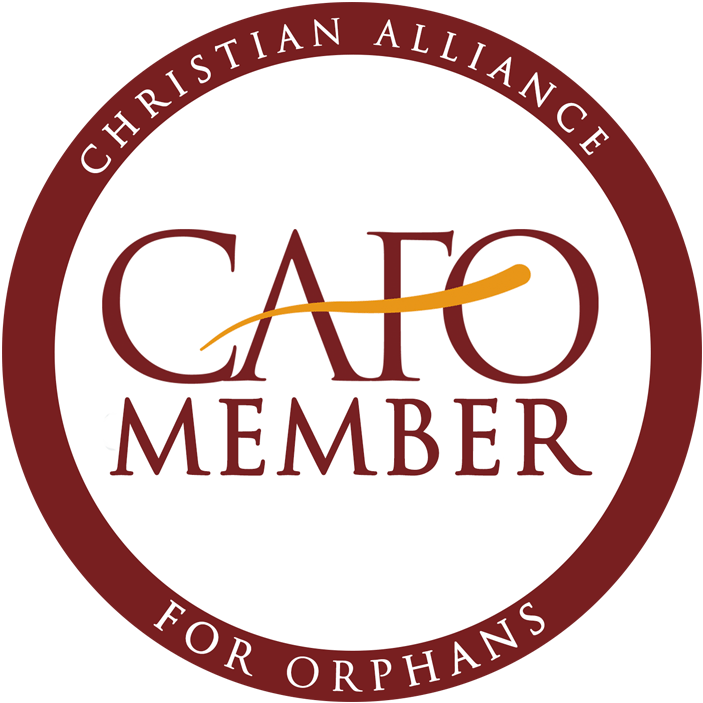Organizational Health: Thriving Cultures Built Upon Core Values
By Jenni Lord
We will either enjoy the culture we promote or tolerate the one we condone. Either way, our culture is shaped by the behavior, interaction, and conflict within our team as we work to accomplish our mission and vision. Healthy cultures can be innovative and overcome significant challenges to achieve results. Toxic cultures rob our teams of engagement, buy-in, and performance.
Culture is the lifeblood of any organization. Let’s think about that for a moment. Your blood carries oxygen, nutrients, fuel—life—to every part of your body. Your cultural blood is also carrying oxygen, nutrients, and life to every part of your organizational body.
What is in your blood that powers the work? Your feet carry out your mission. Your hands serve the vulnerable. Your brain thinks critically, imagines new realities, and executes. Your heart extends compassion as the soul of the organization. So what is coursing through your veins? Hopefully, passion and vision reinforced by your core values. Conversely, if it is fear, a scarcity mindset, or lack of vision, you will not have a thriving organization.
Start With Why
Your people all probably know what you do. But as Simon Sinek has taught us, we must start with WHY we do it. Why we do what we do determines the how. And if we have lost sight of our why, the how will be shoddy at best and negligent at worst. Further, if we lose sight of our why as leaders, we will definitely flounder and negatively impact the people looking to us for direction. Which, of course, hinders our noble missions and outcomes. Ask yourself, Why do I do what I do? Why here? Do some serious reflection. Write it down. And then go talk to your people. And ask them their why.
If we lose our why, the vision will not be clear.
Today, we’re really talking about the how a Culture defined by core values determines how you live out your why and the mission of the organization.
The Great Resignation
The reality is that with the mass exodus of the American workforce, you can obviously choose where you work. Economists are calling it the Great Resignation. Caseworker turnover is higher than it has ever been in many states. Clearly, we have room to improve as a sector. No one gets into child welfare with malicious intent, and it’s heartbreaking to see professionals leave the field who statistically are unlikely to come back. These people got into our profession to make a difference in the lives of vulnerable children. And yet, we are killing off this hopeful, idealistic bunch.
We have to pave a different way to get different results. Let’s create vibrant agencies where people want to stay.
To make a fundamental shift focused on healing and thriving families, there has to be a cultural shift in our organizations.
Time to Double Down
The premium is on culture. Prioritizing a healthy culture impacts every facet of your organization.
People are reevaluating how and where they spend a huge amount of their waking hours. How will you and your organization not be a casualty of the Great Resignation as we recover from this pandemic?
My why for this article: I long to see systemic transformation. We must shift from a child welfare system primarily focused on safety to a thriving child and family well-being system. Slight change in words. But profoundly different meanings.
To make a fundamental shift focused on healing and thriving families, there has to be a cultural shift in our organizations. I posit that as a sector, we must change the way we think and do the work. Change begins with a leader’s commitment.
To make this shift, what is best for children and families should be the perspective that drives the work. It pains me to see the work driven by rules, regulations, and licensing. I’m all for structure and accountability, but if the rules and regs shape our culture, we are really missing the mark.
How Culture Is Shaped: Core Values Must Be Tied to Expected Behaviors
One of my business coaches was a Culture Curator from the iconic Southwest Airlines. She taught me how Southwest developed such a strong culture. The organization intentionally tied expected behaviors to core values. Team alignment on how you expect each other to show up is critical.
Years ago, our team went through an organizational exercise to tie behaviors to core values. Without that connection, core values are just ideals on a wall or in a handbook. How are you actually living out your core values? Do your teammates know how they are expected to show up?
As it is for many of you, integrity is one of our core values. But integrity is about more than just being honest. We expect each other to use candor with kindness. Unclear, indirect communication hinders the mission. We hear this phrase regularly around our virtual hallways. It’s actually unkind to be unclear.
Having this expectation gives people permission and freedom to show up with authenticity and say hard
things. Crucial conversations are vital to the health of any organization.
You can find more examples of behaviors tied to core values here.
Accountability
The cure-all is accountability. Core values define culture. Once people understand the expectations tied to core values, they must be held accountable. I’m not suggesting a fear-filled environment. Actually, it’s the antithesis. When we know our why and have an inspiring mission, living from our core values is extremely fulfilling. And certainly, if you’re walking the walk, you want to see your teammates doing the same.
So how do we hold people accountable for living from core values? What gets measured gets done. What gets recognized and rewarded gets repeated. You need a system for both.
Your consistent meeting rhythms are opportunities for staff shout-outs whereby you recognize how Suzy operated with excellence. Share an example inside a real story with the team. Pop some bubbly, bring cake, or send a small gift to reward excellence.
You know core values are sticking when you hear staff at all levels recognizing core values in their peers. Facilitate that intentionality with a place holder in meetings to give staff headlines. Recognition can’t just be top down to help shape culture.
Assessments are just as important. But don’t wait for the annual anonymous survey to check your cultural health. Incorporate ways in which your people are behaviorally abiding by the core values into their quarterly or monthly reviews. In our organization, the supervisor rates the staff member, and the staff member rates themself with a simple plus or minus. This approach allows for healthy discussion and the opportunity to address the gaps.
Directors should be the protectors, promoters, and preservers of core values. The assumption is that they are already demonstrating your core values. If not, you must take deliberative steps to address the gap quickly.
The labor shortage can’t be an excuse to not hold people accountable. Our most vulnerable children deserve the best care and service possible. And it is the children who suffer the most when we neglect to hold team members accountable.
I have witnessed how motivating it is when people see the high standards of their peers in action. Everyone wants to be part of a winning team!
Practical Next Steps
Have you defined the expected behaviors tied to core values? If not, that is Step 1. Define your core values with behaviors together as a team. Use a facilitator to help you involve your whole team.
If you’ve already done that, be sure you are reinforcing your core values.
Start or utilize key traditions to recognize, reward, and celebrate people living from core values.
The power of story cannot be overstated. Share stories internally and externally with all of your key stakeholders. Stories are the perfect opportunity to reinforce core values that strengthen the culture.
Everyone wants to be part of a winning team!
Culture Defines Trajectory
Some agencies promote based on longevity. That is a terrible reason to promote. Growth is crucial to meriting promotion. A demonstrated commitment to and aptitude for learning are essential for developing talent.
Budget for professional growth per individual and include it in your employee benefits. We won’t have healthy cultures if we don’t invest in our people.
Beyond continuing education units (CEUs), there must be opportunity to foster management and leadership abilities. As leaders, we are often overloaded with leadership training materials. In my experience, junior staff need guidance to find the appropriate professional development pathways. I have found that workers of all levels in child welfare frequently have had very little, if any, opportunity for professional growth. This lack of opportunity for growth must change for our sector to thrive.
Another component of a healthy culture is a commitment to developing your bench strength. An easy way to do this is by delegating special projects. Special projects give staff a “little more ground” where they have space to stumble, grow, learn, and even fail without sinking the organization.
For example, we recognized that a direct care staffer really enjoyed data and was fast at maneuvering technology to gather, sort, and report. After a trial period, this team member was able to take on more responsibility and eventually grow into a management role.
Another tactic is to use cross-team and cross-functional task forces to solve problems. We had a program that was fantastic conceptually but wasn’t yielding the results we wanted. Rather than taking a top-down approach to redesign, we created an ad hoc mini task force and let the junior staff tell us how to modify the program. This approach empowered creative, critical thinking, which led to impact. This mini project reinforced core values and fostered trust, yielding positive cultural benefits.
As the CEO, I have learned that among my many roles, that of Chief Reminding Officer cannot be overstated. Living from your core values requires continual reinforcement to hear and see the healthy culture you undoubtedly desire, so that together, we can be the change we want to see.
Jenni Lord is the CEO of Chosen, an organization that equips caregivers with tools to help children heal. Chosen is based in the San Antonio area and provides telehealth services throughout the country.
About Chosen:
Chosen works to help children heal from trauma by strengthening their families. Our practitioners and licensed care managers work with families impacted by the child welfare system – including adoptive, foster, kinship (relative) families, and biological parents reunified with their children. Follow us on Facebook, and Instagram, or visit www.chosen.care to learn more.
Media Contact:
Wade Martin
VP of Strategic Partnerships & Content
wade@chosen.care
828.434.5180







